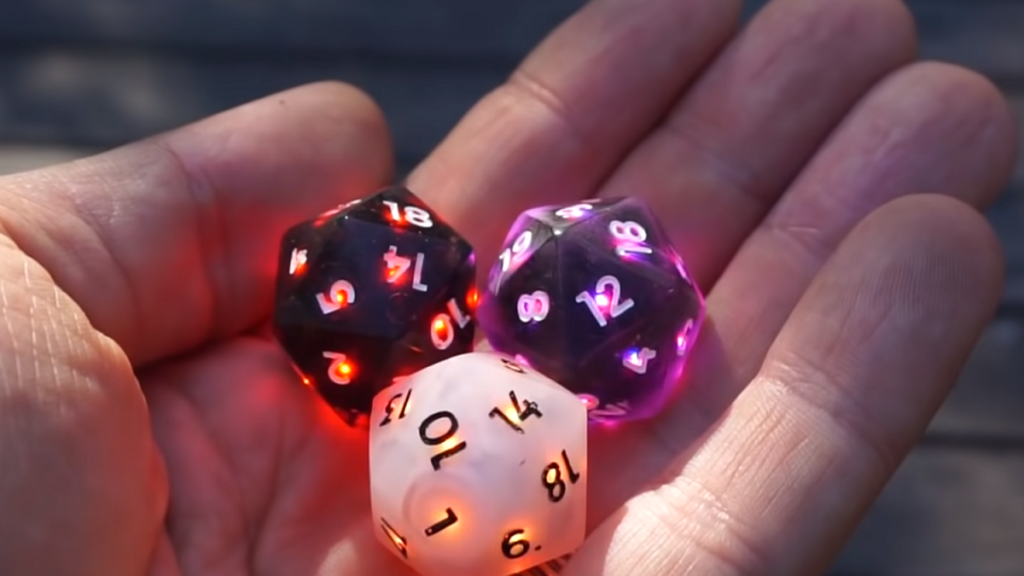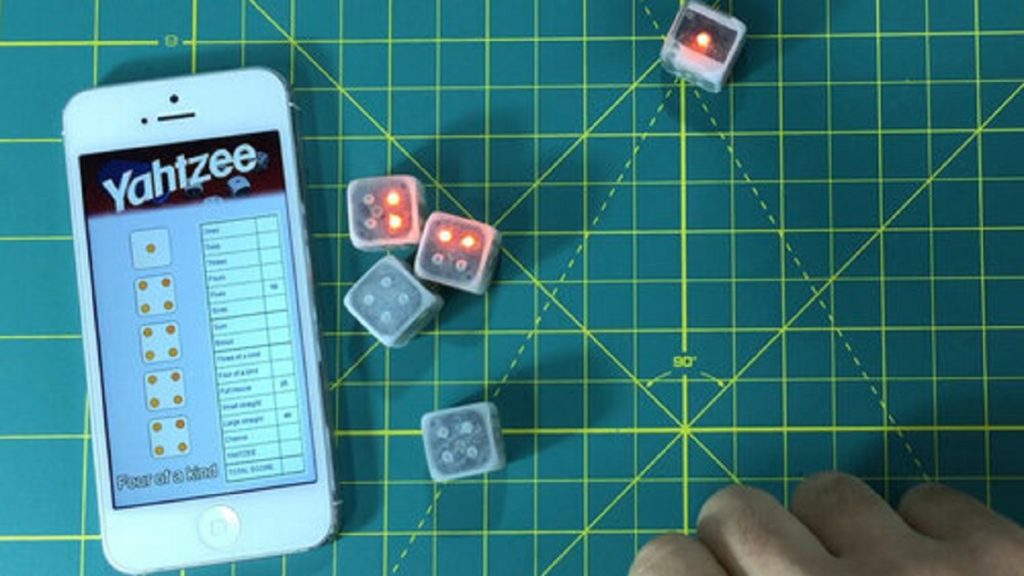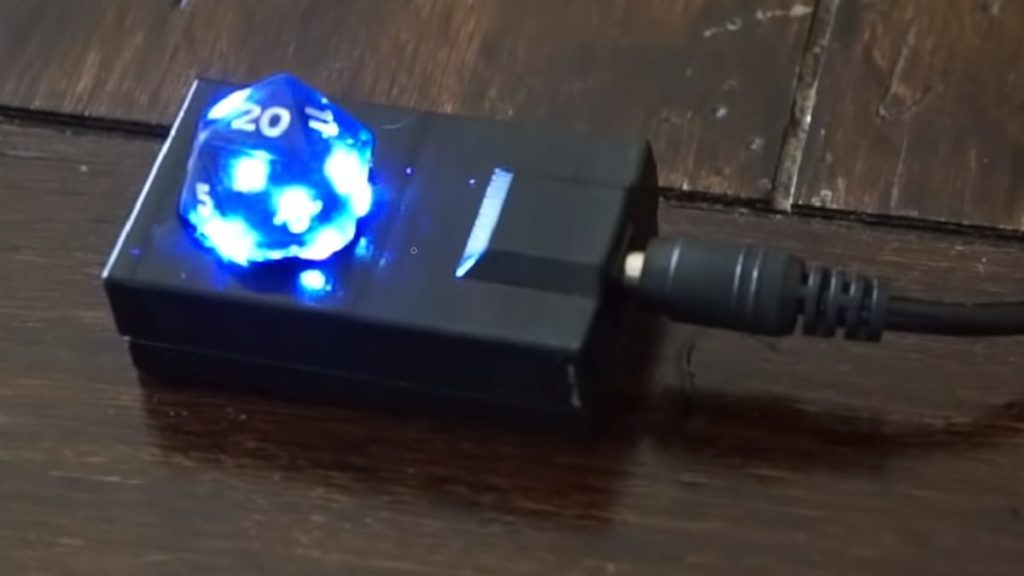
Pixels has shown us that there’s very little that RGB cannot find its way into these days. Taking us back to the root of role-playing games creator Jean Simonet has developed electronic dice. No these are not the kind of dice to get you into trouble at the local casino. These do, however, include most of the modern feature’s PC users have come to expect from enthusiast accessories and peripheral devices.
Having put some thought into this product he’s really packed a lot of features into this old but not forgotten tool of tabletop games.
- RGB LED in dice can be customized to be controlled individually or in unison.
- Have specific colors illuminate for a specific roll. Maybe red for a fail or multiple color changes for successes.
- Create your own animation patterns for the RGBs.
- Bluetooth connectivity to phone apps. See your rolls live and have them interact in games. Potentially have online integration with games.
- Wireless charging via their own carrying case with charge lasting at least five hours. There is a disclaimer it could last longer depending on fidgeting.
- Using standard sizes, they could easily be mixed with other dice.
- Variety of base colors to be offered.
- Designed with care for balance and the ‘feel’ of dice in mind.
- Durable and even waterproof.


According to the website their Kickstarter campaign has not yet begun but are hoping to begin in June 2020. The offer will comprise of choices of how many dice, base colors, and face designs. They hope to begin shipping within 6 months after finishing the campaign. The price, however, is a little up there. The goal is approximately $25 to $30 per die.
For even more details on the app and descriptions visit their hackaday page here.
